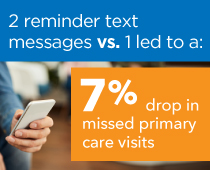Biostatistics
High-quality health care research depends on high-quality biostatistics: Without it, conducting scientifically sound studies would be like trying to assemble a puzzle without having all the right pieces.
The Biostatistics Division at Kaiser Permanente Washington Health Research Institute (KPWHRI) promotes the use of rigorous statistical methods that enhance the quality of research at Kaiser Permanente Washington and nationwide.
KPWHRI biostatisticians play a role in nearly every study conducted at KPWHRI, providing grant development, study design, and analytic support to the institute’s research teams. They also provide statistical leadership for several national consortia that are developing innovative methodological approaches to benefit public health. These include the Food and Drug Administration’s Sentinel Initiative for drug safety, the National Cancer institute’s Breast Cancer Surveillance Consortium, the National Institute on Drug Abuse’s Clinical Trials Network, and the National Institutes of Health’s Health Care Systems Research Collaboratory, which supports pragmatic clinical trials that leverage large health systems’ existing data resources to efficiently produce results that reflect real-world care.
Additionally, members of the Biostatistics Division collaborate with the Mental Health Research Network, helping to design research studies to improve mental health care by using electronic health record (EHR) data to identify which depression treatments will work best for different people.
KPWHRI biostatisticians also play an integral role in influential learning health systems (LHS) research in partnership with KPWHRI’s Center for Accelerating Care Transformation (ACT Center). This research focuses on rapidly improving the delivery of health care using internal data and input from patients, community members, providers, and health system leadership.
Research highlights
 Predicting and preventing missed clinic visits
Predicting and preventing missed clinic visits
Predictive analytics work led by KPWHRI biostatisticians is helping decrease missed clinic visits at Kaiser Permanente Washington. A validated risk model paired with a simple intervention (sending 2 reminder texts about appointments instead of 1) led to a 7% drop in missed primary care visits and an 11% drop in missed mental health care visits.
 Monitoring vaccine safety
Monitoring vaccine safety
Members of the Biostatistics Division work with the Centers for Disease Control and Prevention and Food and Drug Administration to monitor the safety and effectiveness of vaccines. Since the rollout of COVID-19 vaccines, they have helped to track adverse events, identify unusual patterns that need further research, and use the available data to better understand health outcomes and treatment options for patients.
 Identifying racial inequity in prediction models
Identifying racial inequity in prediction models
A study led by KPWHRI biostatisticians found that some suicide prediction models perform poorly for certain racial and ethnic groups, demonstrating the importance of evaluating such models before they are used. Ongoing work at the institute continues to guide equitable use of machine learning in health care.
 Advancing research on HIV and AIDS
Advancing research on HIV and AIDS
A grant co-led by a KPWHRI biostatistician received a National Institutes of Health MERIT award, a rare honor that is a vote of confidence in future results. The funded project will make it easier for researchers to work with error-prone data, which is common in HIV/AIDS research, and ensure the best possible results for their studies.
Researchers in Biostatistics
 Melissa L. Anderson, MSPrincipal Collaborative Biostatistician |
 Jennifer F. Bobb, PhDSenior Biostatistics Investigator |
 Yates Coley, PhDAssociate Biostatistics Investigator |
 Andrea J. Cook, PhDSenior Biostatistics Investigator |
 Maricela Cruz, PhDAssociate Biostatistics Investigator |
 Noorie Hyun, PhDAssociate Biostatistics Investigator |
 Laura E. Ichikawa, MSPrincipal Collaborative Biostatistician |
 Abisola Idu, MS, MPHCollaborative Biostatistician |
 Chloe Krakauer, PhDCollaborative Biostatistician |
 Jennifer C. Nelson, PhDDirector, Biostatistics; Senior Investigator |
 Pamela A. Shaw, PhD, MSSenior Biostatistics Investigator |
 Susan M. Shortreed, PhDSenior Biostatistics Investigator |
 Yu-Ru Su, PhDAssociate Biostatistics Investigator |
 Rod L. Walker, MSPrincipal Collaborative Biostatistician |
 Robert D. Wellman, MSPrincipal Collaborative Biostatistician |
 Brian D. Williamson, PhDAssociate Biostatistics Investigator |
 Onchee Yu, MSPrincipal Collaborative Biostatistician |
 Weiwei Zhu, MSPrincipal Collaborative Biostatistician |



